In his autobiography, Henry Boucha, Ojibwa: Native American Olympian (2013), the hockey legend explained his hometown was given its name of Warroad to recognize the honor and valor of the Ojibway warriors who had fought against the Dakota and who had forged a lasting peace there.
Kah-bay-kah-nong is the name of the Ojibway village which became the city of Warroad, Minnesota.
The dialect of the Ojibway language spoken on Lake of the Woods differs slightly from what has become more standard usage through the efforts of the Ojibwe People’s Dictionary at the University of Minnesota.
There I find gabekana. From gabe [gah-bay], which means all the way, to the end. Plus kana [kah-nah], which means road or trail.
It is likely the Ojibway referred to their village as “at the end of the trail.” The trail refers to the path along the glacial ridge south of the Canadian border that runs from the west to where it ends at the shores of Lake of the Woods. This same trail was used by the Dakota warriors in the 1770s.
Did “at the end of the trail” in the Ojibway language become “war road” in English?
How precisely Warroad got its name has been lost in translation and lost to history. Warroad already had its own newspaper by the time the city was officially incorporated in 1901. The greatest influx of white settlers came to homestead here in the 1890s, though La Verendyre and other French fur traders visited the Ojibway village in the early 1700s.
When you see how far north it is in Minnesota, Warroad seems like the end of the trail. When I am there under that enormous sky where it meets the wide open expanse of water on the eastern horizon, it seems like it’s the end of the earth, the end of the universe. Even more so at night, where stars and the Northern Lights appear overhead. In 2024 there are still fewer than ten people per square mile in Roseau County. The city is where the Warroad River empties into Lake of the Woods.
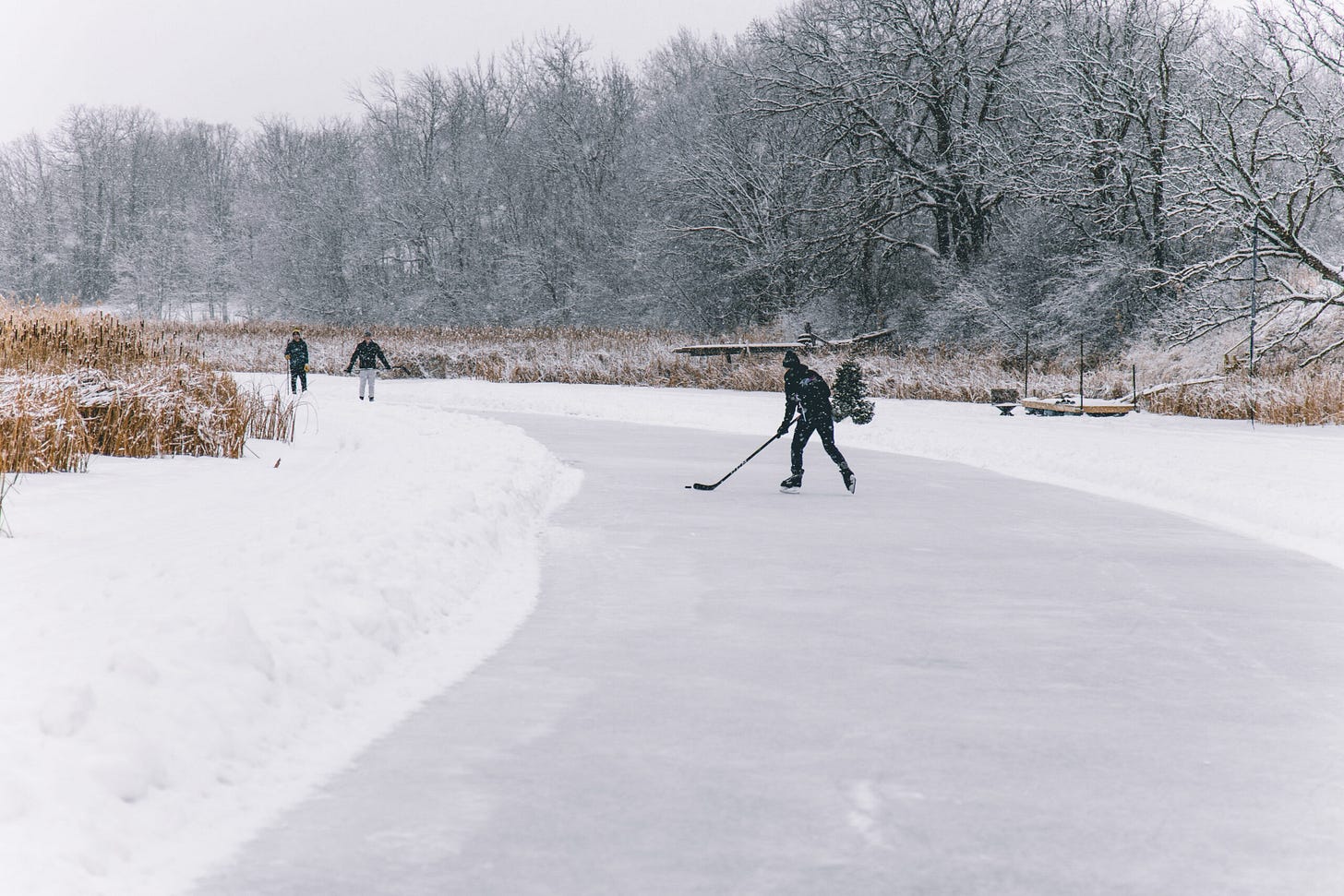
Henry Boucha (1951-2023) grew up skating outside on the frozen Warroad River. Today there is a five-mile-long outdoor ice-skating park on the river. And the past few weeks, preparations for January 25-27 have been underway to host Hockey Day Minnesota 2024 in Hockeytown USA. Sports fans from all over the state plan to arrive at the end of the trail for the festivities.
In partnership with Minnesota Wild, Bally Sports North and Minnesota Hockey, the city will offer family fun with skating, sledding, food trucks, fire pits, igloos, and live music. There’s good ice fishing, too. And, of course, plenty of hockey.

The history and heritage of hockey in Warroad is a matter of town pride. Its biggest booster was Calvin Coolidge “Cal” Marvin (1924-2004), who coached hockey for nearly 50 years. Cal Marvin grew up skating on the river and dreamed of an indoor rink. When he went off to the Second World War, Cal made the Warroad Arena Fund the beneficiary of his life insurance policy. He safely returned and started raising funds to build an ice arena. He recruited some of his teammates from the University of North Dakota to form the Warroad Lakers in 1946, the year before the arena was built.
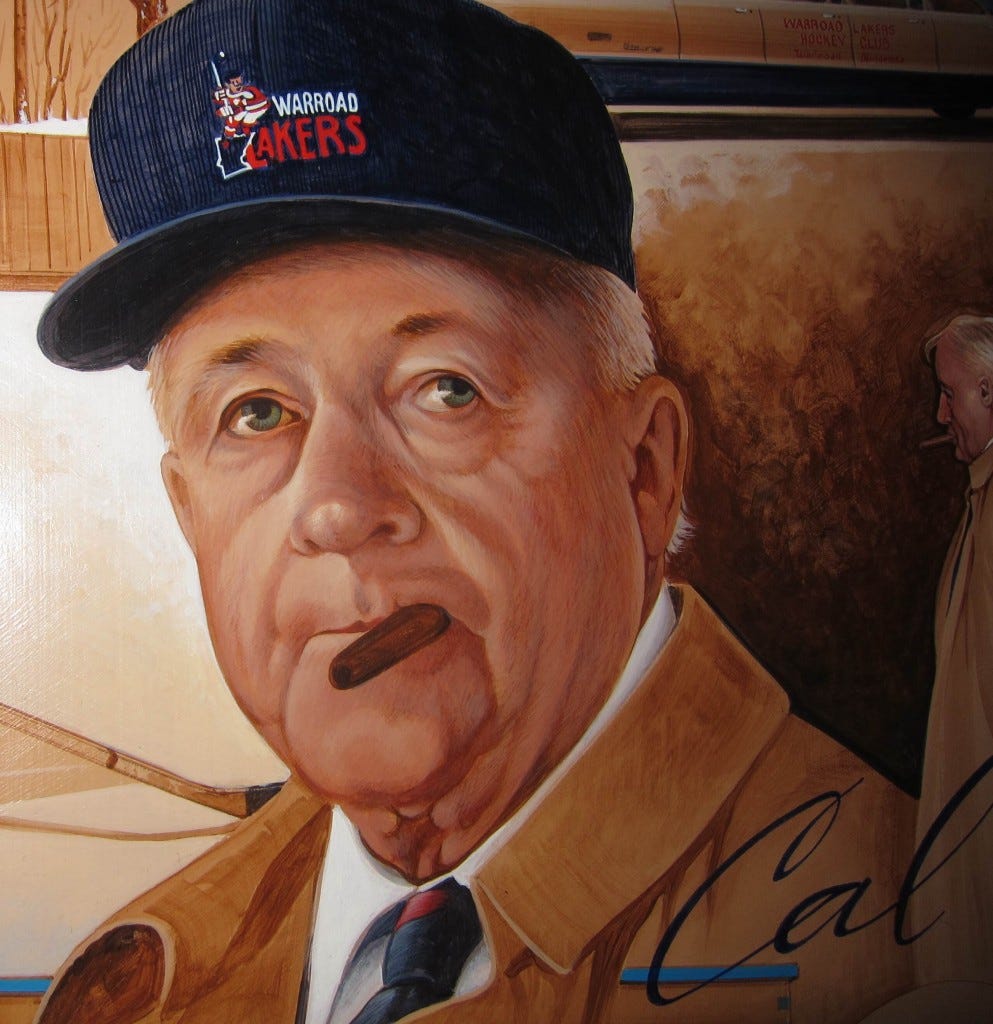
Cal Marvin coached Bill and Roger Christian, who played on the US Olympic team in 1960 and 1964 when they brought home gold medals. Then the Christian brothers started manufacturing hockey sticks which became world famous.
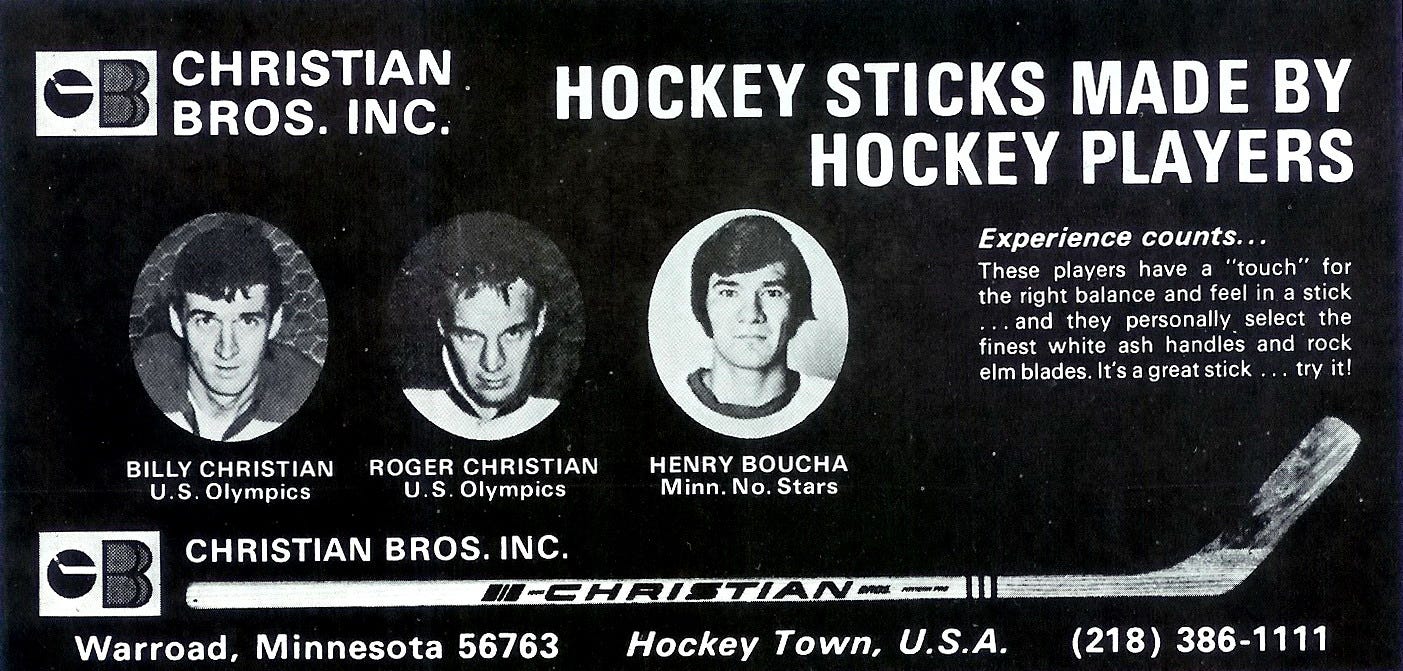
Bill Christian’s son, David was on the “Dream Team” in 1980 when the US hockey team beat the USSR in what has become known as the “Miracle on Ice.” Brock Nelson, Bill Christian’s grandson, plays hockey for the New York Islanders.
Gigi Marvin, Cal’s granddaughter, won a silver medal in 2010 and in 2014. Boston’s Professional Women’s Hockey team signed her in December 2023 for a comeback tour (and if you haven’t yet heard, Minnesota now has a professional women’s hockey league).
T. J. Oshie, whose father is a cousin to Henry Boucha, won the Stanley Cup as a member of the Washington Capitols in 2018. And, of course, there was Henry.
Hockeytown USA will host a premiere screening of a new documentary about Henry Boucha on Friday afternoon, January 27.
The documentary details his athletic success until his NHL career was cut short by an on-ice assault and injury, his legal battles with the NHL, and his journey of healing and cultural reclamation. The film’s tag line explains: Boucha is not about winning and losing—on the ice or in the courtroom; it is about a man uncovering hidden pride for his people and culture (Twin Cities PBS).
Produced and directed by Leya Hale (Sisseton Wahpeton Dakota, Diné), The Electric Indian, will be broadcast on Twin Cities Public Television on March 26.





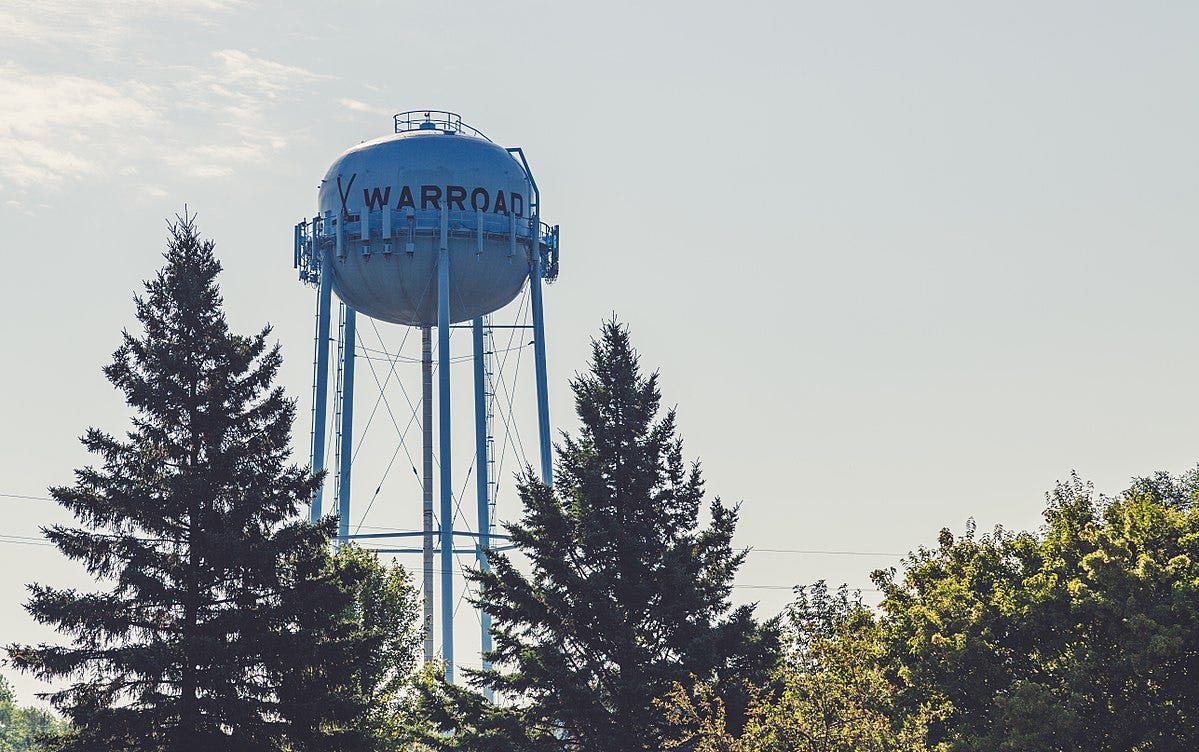

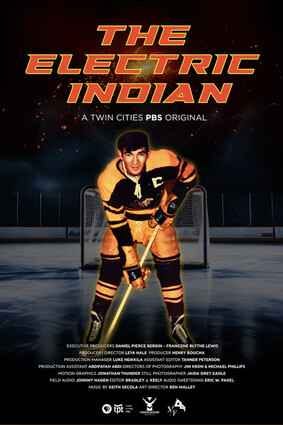
Beautiful writing here! I'm so glad you're writing about this - writing and spelling these names and words and telling this history. Many of the names and words are unfamiliar to me, but they shouldn't be! Thank you for this, Jill!
Well, I certainly want to watch The Electric Indian. I've put it on my calendar.